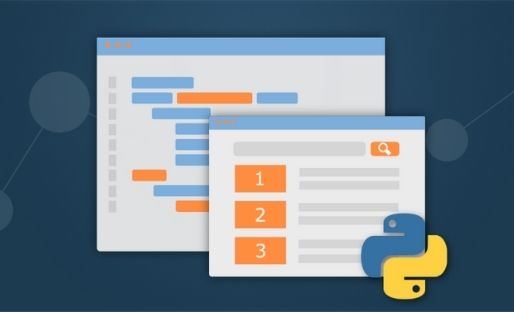Learning how to implement technical SEO correctly can significantly improve your website rankings. This type of SEO mainly focuses on improving your site’s architecture to allow easier crawling by the search engine bots.
Now the big question is; can you automate technical SEO and is there a simple way to do it? Well, you bet there is! Python, a nifty programming language can come in handy in this case.
In this article, we explore six reasons why you should leverage the power of this language to improve your website’s technical SEO and boost your rankings.

Contents
Automate repetitive tasks
For starters, Python makes it easy to automate low-level tasks that would take hours on end to accomplish. Moreover, you can use it to speed up the extraction and analysis of large data sets as well as automate repetitive tasks. This is key if you’re to free up your time for other essential SEO tasks.
Additionally, the simplicity that comes with Python programming allows a better understanding of data for improved SEO practices and decision-making. These can improve your confidence levels when providing advice regarding the best recommendations to your stakeholders and clients.
Finally, you can use Python scripts to automatically identify changes in indexation or perform a comparison of different canonical URLs. What’s more, this language can enable you to scrape your competitor’s pages to keep tabs on any changes regarding their prices or products.
Keyword research
The success or failure of your digital marketing efforts depends heavily on the keywords you choose to target for your SEO campaign. Python makes it easy to find easy to rank for keywords depending on your identified buyer personas. It can also facilitate the creation of unique content for ranking purposes.
You can use the language to categorize thousands of keywords based on buyer intention to improve customer acquisition strategy. For instance, Python can also help you understand the alignment of keywords for the different types of searches conducted on a daily basis. Such terms include transactional, commercial, navigational, and informational.
Finally, you can get deep insights into the current SERP results including potential businesses you’re competing with. All this can be attributed to deep learning supported by the Python platform.
SEO analyzer tool
Python 3.4 and its later versions allow the integration of an SEO analyzer script that can evaluate a site’s structure by crawling it and evaluating the existent fundamental SEO issues. It accomplishes such through a website’s XML sitemap or homepage.
At the end of the process, the analyzer tool will display the following essential information:
- Meta descriptions
- Page titles
- Word count
- Warnings about missing, alt text, meta descriptions, and titles
Image optimization
Likewise, Python 3.6 and its later versions allow the integration of an image optimizer to help minimize image sizes for quicker load speeds. Doing so reduces the weight of a page which is a key factor when it comes to SEO performance.
Links analysis
If your primary objective is to obtain information concerning internal links, Python can help! The language makes it easy to identify broken links and to determine the number of existing internal links present on a page. You can also use it to point out image links without alt tags. Furthermore, you can use the language to check the existence of external links and subdomains.
In a nutshell, Python can come in handy if you are looking to streamline your link-building campaign and maximize the power of every backlink that points to your website pages.
URL Mapping
Moving your website to a new address can break your links and possibly direct users to error pages. Luckily, you can implement Python to automatically redirect old links in bulk to point to the new addresses. This can prevent your business from incurring losses or experiencing costly downtimes.
Final Thoughts
Overall, the Python programming language makes it quicker to identify key technical SEO issues while also providing effective solutions for website owners. This makes it easier to implement important SEO tweaks that boost rankings.
Many top organizations and companies the world over are already using Python to automate their technical SEO tasks. Join the bandwagon now. Leverage the power of this powerful programming language to save time, boost results and increase revenues for your online business.
Recommended Reading:
